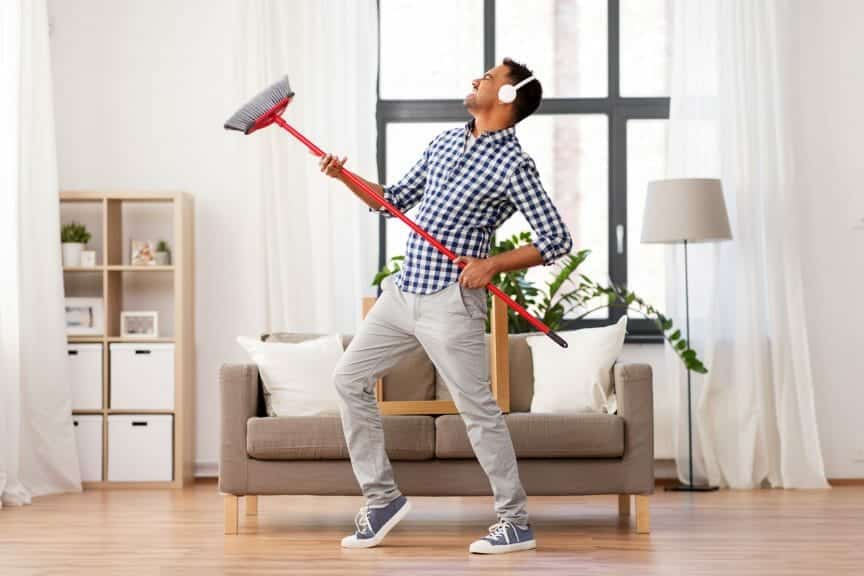College is a time of self-discovery. Many of us choose to live away from home for the first time, providing increased freedom and responsibility. For me, I discovered that I can be indescribably and borderline unforgivably messy.
My room at home was always a bit cluttered, but without my parents hassling me to clean, my space quickly fell into disarray. I had times when my desk was unusable due to knick-knacks and old papers sprawled across the surface. I have a nasty habit of tossing clothing onto chairs rather than putting them away. Empty water bottles waited in line for recycling, wondering if they would ever leave the prison that was my bedroom.
A messy room can be more than an inconvenience. Disorganization of home environments can affect one’s mental health and harm those one lives with. In some cases, it can directly reflect the emotional state of the room’s owner.
The “Depression Room”
Social media users coined the term “depression room” to refer to a space cluttered because of a decline in mental health. Some share videos of such rooms online. Users acknowledge the extreme levels of chaos in their own spaces, sometimes including the process of cleaning up.
Other users expose the messy rooms of those they know or reside with. Dwelling with someone with different organizational habits is a struggle, especially if the other person disregards mutual responsibilities to keep a neat, or at least livable, environment.
Still, it is important to receive consent from your roommate before participating in this trend. Publicly revealing someone’s private room could lead to embarrassment and only increase tensions, rather than addressing them healthily. Fortunately, many videos are just a mutual joke between the roomies.
Cleanliness and Health
Our mental state and the state of our living areas are evidently connected. A study from 2016 on hoarding, which is one potential cause of clutter, found a “significant positive association between the symptoms of depression and increased hoarding severity.” Messiness is overwhelming and mentally draining, even when we are the cause of it. Pre-existing depression can also reduce the motivation to clean.
The study also observed that those who hoard are also more likely to perceive themselves as a burden, as their overwhelming habits can bother or even endanger housemates. Excessive items can pose tripping or fire hazards or create unsanitary conditions. No one wants to live in a house filled with someone else’s mess. While some disorganized individuals may be truly inconsiderate, others experience great remorse for the imposition they cause.
Furthermore, in 2018, Ferrari et al. found that clutter was the “best predictor of procrastination.” I can certainly attest to that; sometimes, I delay cleaning by simply deciding it is a problem for later. The motivation to clean takes a bit more effort for some than others so that these chores can pile up over time.
An Empathetic Approach
It is easy to look at a disordered room and judge the person responsible, especially when it directly affects your own quality of life. In some cases, though, compassion is necessary. A room in shambles may indicate that your housemate or a loved one is struggling mentally.
@aurikatariina, the self-proclaimed “queen of cleaning,” approaches those who strain to clean up with kindness. With 10.1 million TikTok followers, she cleans homes free of charge. Some of her clients are elderly or suffering from intense grief. In her post, Auri explains that she is cleaning a bathroom for Helen, a woman overcome with sorrow since losing her parents. The video depicts the intense cleaning process, resulting in a tidy, sanitary space.
Keeping It Clean
There are plenty of preventative measures against the fate of filth. A “Marie-Kondo-approved tip” from Homes and Gardens includes finding a home for every item. Every object should have a set spot, reducing the likelihood of misplacement. You can also implement “drop zones” at home, which are places to put stray bags upon entering. This ensures they do not end up sprawled across the floor, creating tripping hazards and making them easier to lose.
My personal advice is quite tied to Kondo’s philosophy as well: if you are prone to messiness, try focusing on the essentials. This year, I brought significantly less baggage to my dorm. This made all the difference. It is harder to collect piles of forlorn objects in the corner of your room when you do not have stray “stuff.” I try to keep everything purposeful rather than keeping extra “just in case.”
A Mutual Understanding
Whether you are naturally uninclined toward cleaning or are going through a tough time, it is important to address the issue of a messy room. Cleanliness benefits your own health and the health of those around you. On the flip side, check in with your loved ones if their home is suddenly disheveled. They could be good old-fashioned irresponsible, but they also could be fighting some mental battles.














